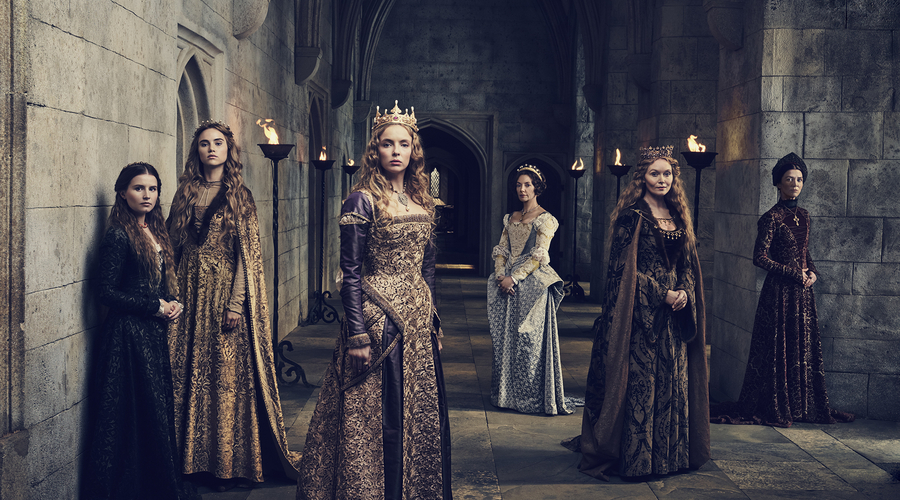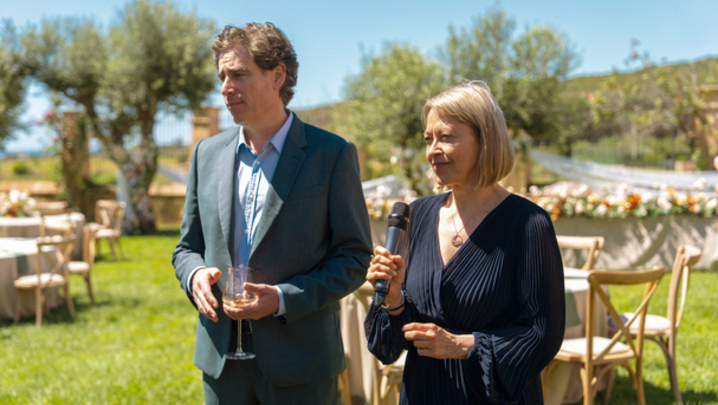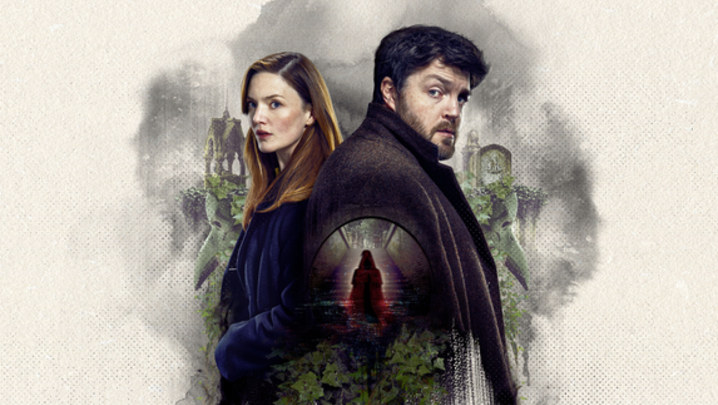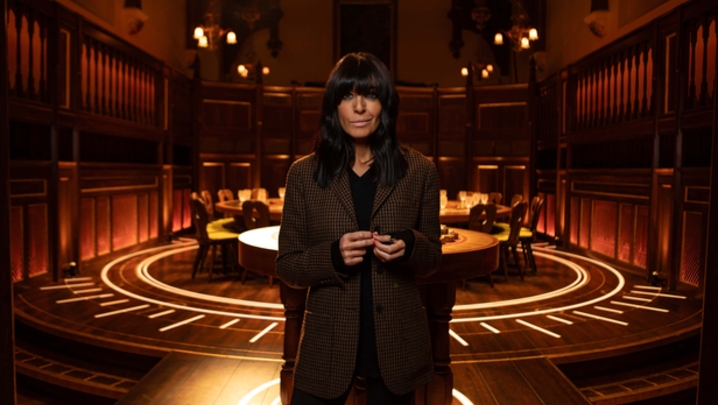“It’s incredibly difficult doing historical shows that span an enormous number of years”, says Emma Frost, the showrunner of Starz hit The White Princess which will be making its UK debut on UKTV’s Drama in November.
The adaptation of Philippa Gregory’s novel was a smash hit in America, becoming the highest rated premium cable show this year. “The fight for eyeballs and the fight to get noticed is more intense than it has ever been,” Frost believes. “Our audiences grew week-on-week and there was such a buzz about it on social media. It really became such a talking point… which was thrilling for us.”
The show is the sequel to BBC/Starz drama The White Queen which aired in 2013, and was also written by Frost. The new series begins just three days after the Battle of Bosworth – where the White Queen ended, and follows a newly crowned Elizabeth of York (played by RTS Award nominee Jodie Comer) as she tries to cement her power without compromising her morality.
“It’s Lizzy’s story,” Frost explains. “It’s the story of, if you are going to be the Queen, can you continue to have humane values: can you rule with kindness and fairness? Lizzy has to make a choice by the end of the show, and it’s a really hard choice.”
The War of the Roses has been brought to a close by Lizzy's marriage to Henry VII, however all is not well in their marital home. Henry despises his bride, due to her rumoured affair with Richard III who was defeated at the Battle of Bosworth, and Elizabeth feels the same way towards her powerful husband.
“It’s… about really deep psychology, deep emotions, politics and a family tearing itself apart,” Frost says, describing the show as “a period Sopranos”. “For me, The White Princess has much deeper roots into characterisation and psychology than The White Queen ever did.”
The intensity of the series has led to comparisons with Game of Thrones – which is itself based around the events of the War of the Roses. Frost welcomes the comparison. “Game of Thrones is a fantastic show! If someone wants to say this is the version of that where the women get their voices and drive the narrative, I’ve got no issue with that,” she laughs. “Great shows always talk to each other and always get compared, but they’re their own beats. This is very much its own thing as well.”
“It is very rare to find a show which is about life and death and high stakes and politics, which is female driven. [In The White Princess] there are these gigantic female characters battling with each other, and the stakes really are life and death.”
That, she believes, is part of why the show has been such a success in the States. “There is a very under-served female audience. Still!” she insists. Yet, the show has also proven popular among a male audience too – something Frost explains ominously as, “[the show] is a fascinating and slightly terrifying insight into when women clash.”
"The bottom line with drama is that good characters are good characters. We don't watch drama from a gendered perspective. If drama is great, men and women will respond [to it] and identify with that character," Frost explains.
Returning to the story brought it's own challenges for the production. The first series covered a period of 21 years in just 10 episodes - which perhaps explains Frost's description of the show as a "hurtle".
The second series covers a more moderate 14 years, she says. However this meant that the actors needed to be artificially aged by as much as 35 years by the end of the second series. "Do you use the same cast and accept... how strange that looks on screen?" asks Frost. Additionally the central character of the first series (Elizabeth Woodville, played by Rebecca Ferguson) fades into the background of the second series. "It's not her story anymore, it's her daughter's story. So suddenly you're in the situation where [you're asking] big actors ... to act in small roles" Frost explains.
Instead Frost found an entirely new cast, led by Jodie Comer (Thirteen) and Jacob Collins-Levy. “I was very lucky,” Frost insists. “I was able to get every single cast member I wanted.” And the new cast offered other opportunities. “The cast do influence the writing,” she recalls. Game of Thrones’ Michelle Fairley, who plays Margaret Beaufort, the King’s mother, allowed Frost to reimagine the character. “She’s so stunning as an actress,” Frost gushes. “You could give her two words and she would imbue them with such a depth of emotion.”
Frost’s next project sees her take on the story of another feminist icon. Zelda tells the story of F. Scott Fitzgerald’s wife, who was described by her husband as “the original flapper.” The story will resonate with a 21st century audience, Frost believes, particularly in light of the recent allegations regarding Harvey Weinstein. “It’s very much a movie wrestling with [the question of] is she telling the truth or is her husband telling the truth, about [about] trying to find her own voice and her own sense of authenticity in a very male world.” Jennifer Lawrence is signed up to play Zelda in the movie, which will be led by A Beautiful Mind director Ron Howard.
For Frost, it is another story to tell, and an opportunity to take a break from the adaptations that she is known for – an opportunity that comes rarely thanks to studios’ wariness of projects that don’t have a foundation in some kind of brand. She shrugs. “[The writing process is] different every time, but the basic process is the same if it’s a book [or] if I start from scratch.”
The White Princess begins on UKTV’s Drama on Saturday 18th November









